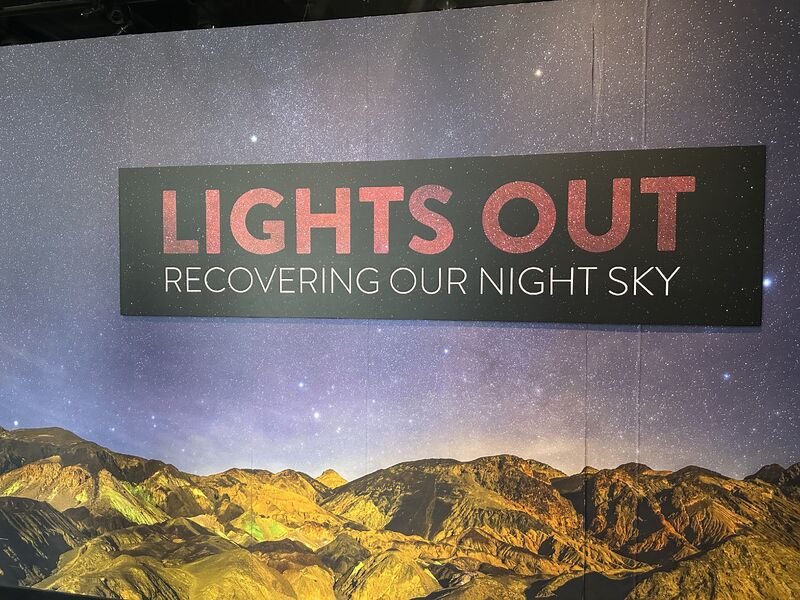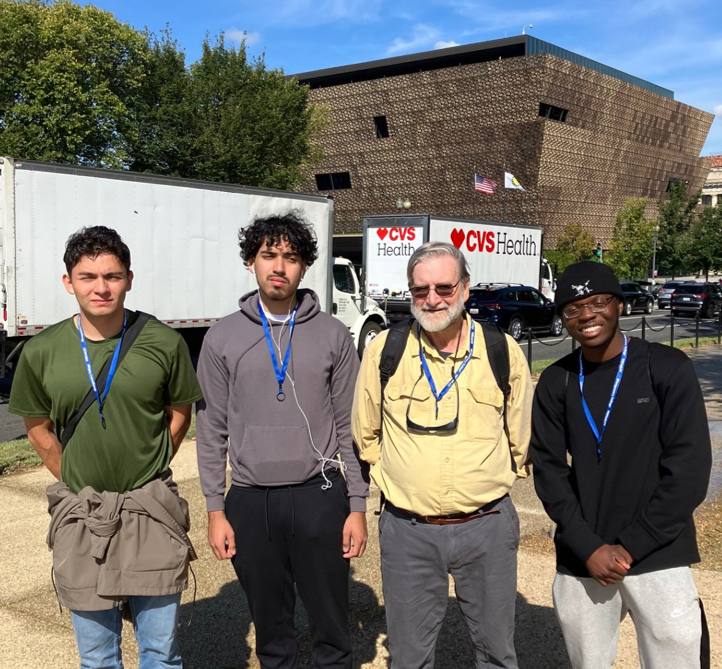By Professor Tiffany Banks On Tuesday, September 30th , students from my COMM 108: Foundations…
by Mercia Rindler, Professor, English
The semester started much the way the Spring semester ended – online! Despite having a few months of remote teaching under my belt, I felt some trepidation as I logged into Zoom the first day of the Fall semester. I wondered silently how I was going to establish rapport with my students without that wonderful first day of class when we excitedly put names to faces, shyly share about ourselves, and quietly ‘read’ each other. And more importantly, how was I going to make this semester a unique experience for my ENGL102 Smithsonian class without going near a museum?
Well, leave it to students. Undeterred by the limitations of COVID-19 and very excited about being part of my Smithsonian Fellowship, they forged ahead. Setbacks became creative challenges. Unable to go downtown to visit the Smithsonian National Museum of Natural History, we took a colorful virtual video tour of Washington, DC, stopping along the way for selfies at the Smithsonian Castle and other Smithsonian Museums. Unable to visit the Deep Time exhibit, the central inspiration for our Smithsonian theme, “Humans and the Footprints We Leave: Climate Change and Other Critical Challenges,” we took a virtual tour, exploring various displays along the way to find inspiration for our own issue topics. Unable to meet in person with Smithsonian curators and educators, we enjoyed a synchronous virtual session with Philippa Rappoport, a Smithsonian educator and the coordinator for the Smithsonian / Montgomery College Fellowship Program. She introduced us to the Smithsonian Learning Lab, showed us how to build a collection of Smithsonian sources, and inspired students to be adventurous in their virtual scouting for sources.
The Deep Time exhibit inspired many innovative issue topics and created a community of engaged and concerned student citizens. Consumerism, Capitalism, The Green New Deal, Renewable Energy, Food Deserts, and Factory Farming are a few of the important issues that students chose to learn more about and address in our various writing assignments. I shared with my students the fascinating presentation by Research Geologist and Curator of Paleobotany Scott Wing, “What a long-ago episode of global warming says about our future;” they were particularly enamored of his job and the fun and adventure it affords him.
I introduced my students to the Museum of African American History and Culture by relaying the excellent discussion on the history of rice cultivation in the United States that STEM Education Specialist Christopher Williams led. And students learned about the Smithsonian American Art Museum when I shared notes from the presentation how art can inspire climate change and create insight into our behavior and impact on our planet by Joanna Mars, Head of Interpretation and Audience Research, and Elizabeth Dale-Deines, Teacher Programs Coordinator at the Smithsonian American Art Museum.
In preparation for a group assignment on creating a museum label, Sara Ickow, a curatorial assistant at the International Center for Photography joined us on Zoom to share her experience with museum exhibits and the art of creating museum labels. Sara’s informative and creative presentation inspired great enthusiasm, and after considerable dissection and review of museum labels, students set off to search the Smithsonian Museum websites for an object, painting, or work of art on our theme. While their labels were not quite museum quality, students put a great deal of thought and effort into their work; furthermore, all loved the assignment, and many said they have added visiting a museum to their “when life returns to normal” to-do list so they could check out labels!
Now, as we move towards the last few weeks of classes, the students are working hard on their final research essay on our Smithsonian theme,” I am happy and grateful to report that the semester has been greatly rewarding and virtually unique for all of us!





This Post Has 0 Comments